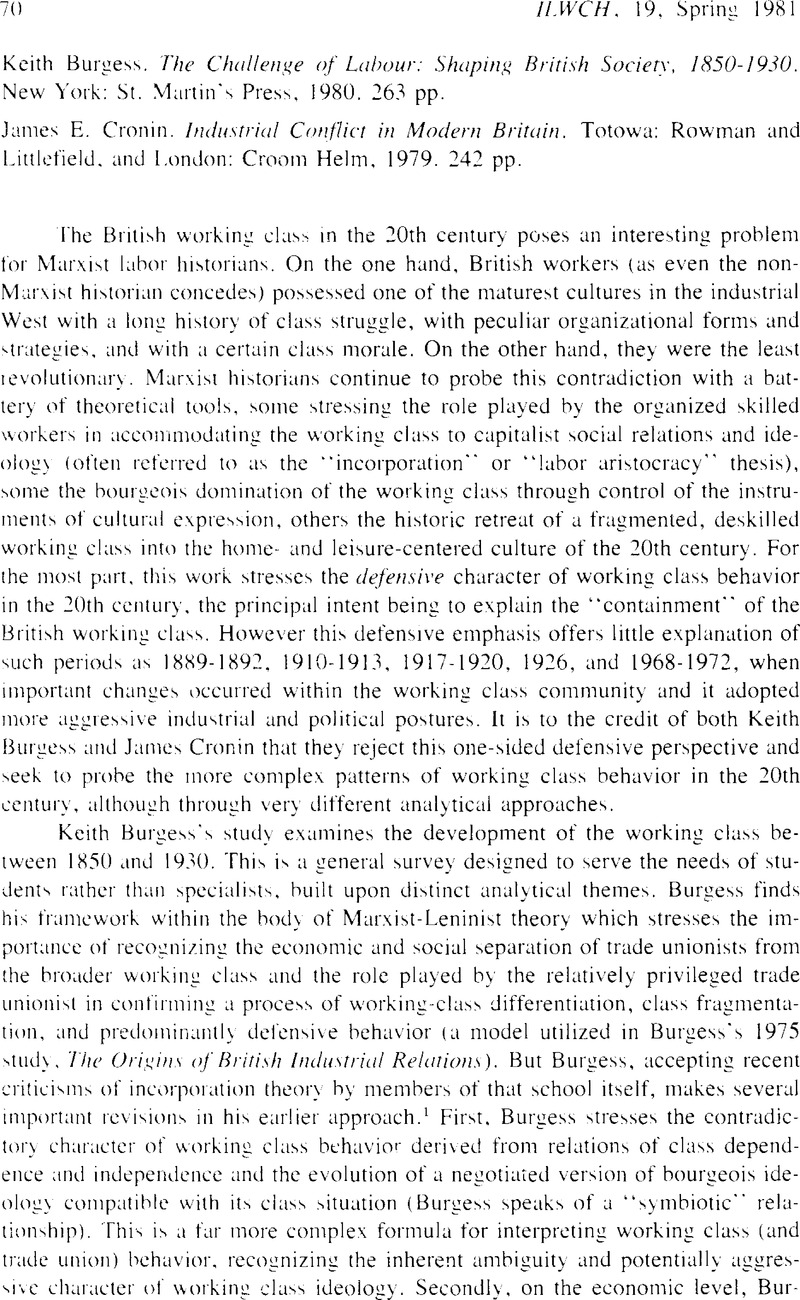No CrossRef data available.
Article contents
Keith Burgess. The Challenge of Labour: Shaping British Society, 1850–1930. New York: St. Martin's Press, 1980. 263 pp. - James E. Cronin. Industrial Conflict in Modern Britain. Totowa: Rowman and Littlefield. and London: Croom Helm, 1979. 242 pp.
Review products
Published online by Cambridge University Press: 16 December 2008
Abstract

- Type
- Book Reviews
- Information
- Copyright
- Copyright © International Labor and Working-Class History, Inc. 1981
References
NOTES
1. The two recent regional studies making a substantive revision in the incorporation thesis are Gray, Robert Q., The Labour Aristocracy in Victorian Britain (Oxford, 1976)Google Scholar and Crossick, Geoffrey, An Artisan Elite in Victorian Society: Kentish London (London, 1978).Google Scholar For a recent informative critique of this theory, see Field, John, “British Historians and the Concept of the Labor Aristocracy,” Radical History Review. 19 (1978–1979), 61–85Google Scholar, as well as the equally illuminating articles of Moorhouse, H.F., “The Marxist Theory of the Labour Aristocracy,” Social History, 3 (1978), 61–82CrossRefGoogle Scholar, and Reid, Alastair, “Politics and Economics in the Formation of the British Working Class: A Response to H.F. Moorhouse,” Social History, 3 (1978), 347–361.CrossRefGoogle Scholar
2. For a recent analysis of the need for this emphasis, see Eley, Geoff and Nield, Keith. “Why Does Social History Ignore Politics?” Social History, 5 (1980). 249–269CrossRefGoogle Scholar; for an older discussion of the same questions, see Fox-Genovese, Elizabeth and Genovese, Eugene, “The Political Crisis of Social History,” Journal of Social History, 9 (1979), 205–220.Google Scholar


